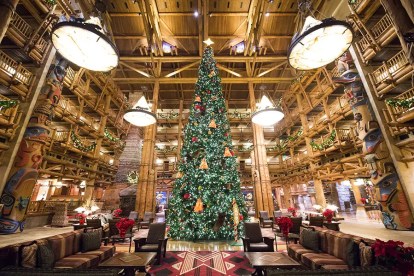When Do Christmas Decorations Come Down in England?

Exploring the Tradition: When Do Christmas Decorations Come Down in England?

As the festive season winds down and the new year approaches, one question lingers in the minds of many Brits: when should the Christmas decorations be taken down? This might seem like a straightforward inquiry, yet it's steeped in tradition, superstition, and personal choice. In England, the tradition of when to dismantle Christmas decorations is both a cultural marker and a practical consideration. Let's dive into the history, the customs, and the modern practices surrounding this curious question.
Traditional Timing

The Twelfth Night, which falls on January 5th or 6th depending on whether you count inclusively or not, has traditionally been regarded as the end of the Christmas season. This timing is rooted in the Church of England's liturgical calendar, where January 6th marks the Feast of Epiphany, commemorating the visit of the Magi to the baby Jesus.
Here's why the Twelfth Night matters:
- Liturgical Calendar: The Feast of Epiphany signifies the end of the Christmas season.
- Superstition: Leaving decorations up past this date is often thought to bring bad luck.
- Historical Significance: Decorating homes during this period was a sign of celebrating Christ's birth and the new year.
Twelfth Night Customs

On Twelfth Night, there are various customs that were followed:
- Burning of the Yule Log: Traditionally, the Yule log should burn from Christmas Eve through to Twelfth Night.
- Taking Down the Tree: Many families would take down their Christmas tree on this day, often burning the branches or discarding them for good luck.
- Feast and Frivolities: It was a time for parties, masques, and sometimes even a bit of revelry, marking the close of festivities.
However, modern practices have evolved, and not everyone adheres to the traditional timing. Let's look at how contemporary Brits handle this question.
Modern Practices

Today, while many still stick to the Twelfth Night tradition:
- Flexibility: Some prefer to keep their decorations up until the end of January, citing the need to bring a bit more cheer during the long, dark days of winter.
- Practical Considerations: The demands of work schedules and the cold weather might delay the process of taking down decorations.
- Children: Families with children often keep decorations up longer to extend the holiday joy.
Commercial Impact

Commercially, there's an influence on when Christmas decorations come down:
| Date | Reason |
|---|---|
| January 6th | Twelfth Night, many retail stores start the post-Christmas sales and promotions, signaling a shift from holiday to post-holiday merchandise. |
| January 7th | Some stores wait until after Epiphany to change their decor to avoid offending customers who celebrate this holiday. |
| End of January | Supermarkets and department stores often remove their decorations at this time to make way for Valentine's Day merchandise. |

The influence of commercialization on this tradition can't be overstated, as businesses now drive the calendar of festivities.
Notes on Superstitions

There are several superstitions associated with the timing of Christmas decorations:
- Bad Luck: As mentioned, leaving up decorations past Twelfth Night is believed by some to bring misfortune.
- Birds in the House: A superstition states that if a bird flies into your home after the Twelfth Night, it's a sign of death.
- Burning Green: Burning your Christmas greenery in the fire, particularly holly, is thought to protect the house from fires in the coming year.
⚠️ Note: Superstitions, while interesting, are not rooted in fact and should be viewed for their cultural significance rather than as predictors of future events.
In summary, while tradition would have decorations coming down by January 6th, modern practices show a range of timings influenced by both convenience and personal attachment to the festive spirit. Superstitions and commercial pressures also play their parts in this cultural ritual.
When is Twelfth Night?

+
Twelfth Night is traditionally observed on January 5th or 6th, signaling the end of the Christmas season.
Why is it bad luck to leave decorations up past Twelfth Night?

+
This belief stems from old superstitions that claim the departure of the festive spirits, with which the decorations are associated, brings ill fortune.
Can I keep my Christmas tree up after Twelfth Night?

+
While traditionalists might disapprove, modern practice allows for flexibility. Many keep their decorations up to extend the holiday cheer into the darker days of January.



